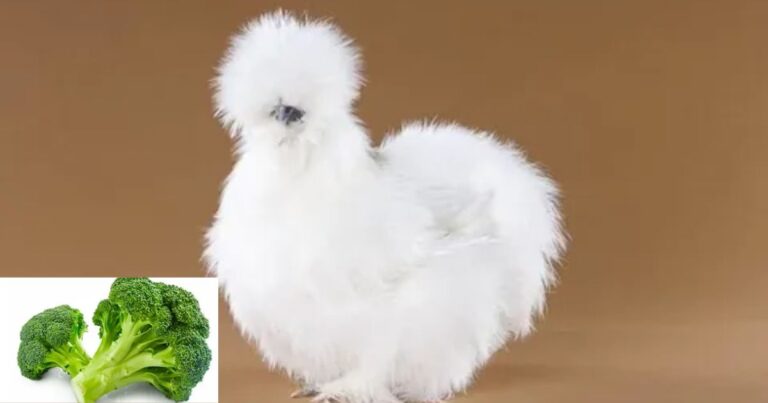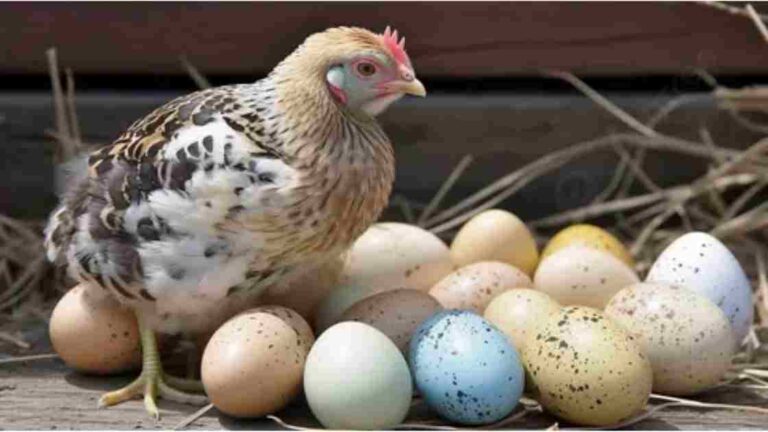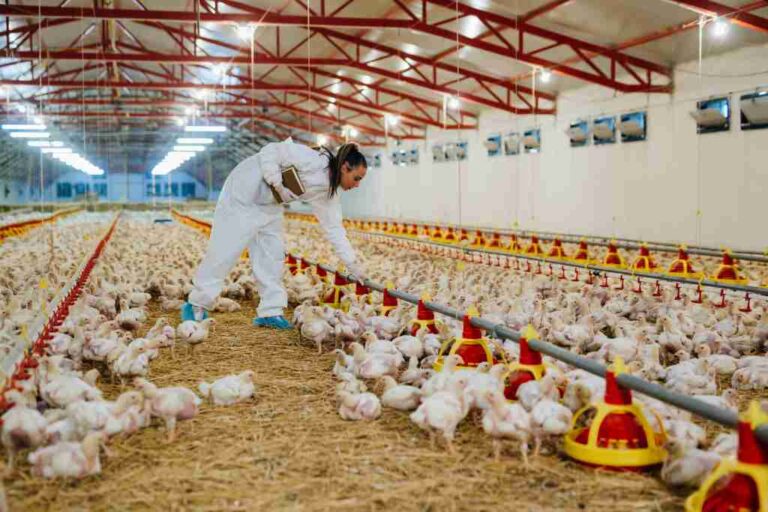Wyandotte Chicken: A Comprehensive Guide to This Beautiful Breed
The Wyandotte chicken is one of the most popular breeds among poultry enthusiasts due to its striking appearance, friendly temperament, and excellent egg-laying capabilities. With a rich history and diverse color patterns, Wyandottes have become a favorite for both backyard flocks and competitive shows. In this comprehensive guide, we will explore the origins, characteristics, care requirements, and benefits of raising Wyandotte chickens.
History of Wyandotte Chickens

The Wyandotte chicken breed originated in the United States in the late 19th century. Developed by a group of breeders in the 1870s, they were created by crossing several breeds, including the Brahma, Cochin, and the Hamburgh. The breed was named after the Wyandotte people, a Native American tribe that inhabited the region.
Key Historical Milestones

| Year | Event |
|---|---|
| 1870s | Development of the Wyandotte breed begins. |
| 1883 | Wyandottes are officially recognized by the American Poultry Association. |
| 1893 | The first Wyandotte club is formed to promote the breed. |
Wyandottes were initially bred for both meat and egg production, making them a dual-purpose breed. Their hardy nature and adaptability to various climates contributed to their popularity among farmers and backyard poultry keepers.
Characteristics of Wyandotte Chickens

Wyandotte chickens are known for their distinct appearance and friendly disposition. Here, we will delve into their physical traits and temperament.
Physical Appearance
Wyandottes are medium-sized birds with a rounded body and a broad breast. They have a unique appearance characterized by their feather patterns and comb types.
| Feature | Description |
|---|---|
| Weight | Hens: 6-8 pounds, Roosters: 8-10 pounds. |
| Feather Patterns | Various colors including blue, black, silver laced, and golden laced. |
| Comb Type | Rose comb, which is less prone to frostbite. |
| Eye Color | Dark brown or hazel. |
Color Varieties
Wyandotte chickens come in multiple color varieties, each with its unique feather patterns. Some of the most popular colors include:
| Color Variety | Description |
|---|---|
| Silver Laced | White feathers with black edging, creating a laced appearance. |
| Golden Laced | Rich golden feathers with black edging, similar to silver laced. |
| Blue | Soft blue feathers with a uniform appearance. |
| Black | Solid black feathers with a glossy sheen. |
| Columbian | White feathers with black on the neck and tail. |
Temperament

Wyandotte chickens are known for their friendly and calm demeanor. They are generally easy to handle, making them suitable for families with children. Their social nature allows them to coexist peacefully with other breeds and animals.
Key Temperament Traits
| Trait | Description |
|---|---|
| Friendly | Wyandottes are known for being docile and friendly. |
| Calm | They typically do not exhibit aggressive behavior. |
| Curious | These birds enjoy exploring their surroundings. |
| Good with Children | Wyandottes are often gentle and tolerant, making them ideal for families. |
Egg Production

One of the significant advantages of raising Wyandotte chickens is their consistent egg production. They are considered an excellent dual-purpose breed, providing both meat and eggs Friesian horse price.
Egg Laying Capabilities
Wyandotte hens are known to lay a good number of eggs, typically producing between 200 to 250 eggs per year. Their eggs are medium to large in size and come in shades of brown.
| Egg Production | Description |
|---|---|
| Average Eggs per Year | 200-250 eggs |
| Egg Size | Medium to large |
| Egg Color | Brown |
Factors Affecting Egg Production
Several factors can influence the egg-laying capabilities of Wyandottes:
- Age: Hens typically start laying eggs around 5 to 6 months of age.
- Nutrition: A balanced diet with adequate protein and calcium is essential for optimal egg production.
- Light Exposure: Hens require about 14-16 hours of light per day to maintain consistent egg-laying.
Caring for Wyandotte Chickens
To ensure your Wyandotte chickens thrive, it’s important to provide them with proper care, including housing, nutrition, and health management black widow spider bite.
Housing Requirements
Creating a suitable living environment is crucial for the health and well-being of your Wyandottes. Here are some key considerations for housing:
| Aspect | Recommendation |
|---|---|
| Coop Size | At least 4 square feet per bird in the coop. |
| Outdoor Space | A minimum of 10 square feet per bird in the run. |
| Nesting Boxes | One box for every 3-4 hens, filled with straw or shavings. |
| Ventilation | Ensure proper airflow to prevent moisture buildup. |
| Security | Use secure fencing to protect against predators. |
Nutritional Needs
Providing a balanced diet is essential for the health and egg production of Wyandotte chickens. Here are some dietary recommendations:
| Type | Description |
|---|---|
| Layer Feed | High-quality layer pellets or crumbles designed for laying hens. |
| Fresh Vegetables | Offer a variety of greens and vegetables for added nutrients. |
| Clean Water | Ensure access to fresh, clean water at all times. |
| Calcium Supplements | Offer crushed oyster shells to provide additional calcium for strong eggshells. |
Health Monitoring
Regular health checks are essential for maintaining the well-being of your Wyandotte chickens. Here are some signs to watch for:
- Behavioral Changes: Sudden changes in vocalizations or behavior can indicate stress or illness.
- Physical Condition: Monitor feathers, eyes, and overall appearance for signs of health issues.
- Eating and Drinking: Ensure they are eating sultan chickens beautiful and exotic pets and drinking adequately; a decrease in appetite can signal health problems.
Benefits of Raising Wyandotte Chickens
Raising Wyandotte chickens offers several advantages for poultry enthusiasts. Here are some notable benefits:
1. Dual-Purpose Breed
Wyandottes are excellent dual-purpose birds, providing both meat and eggs. Their well-balanced bodies ensure a decent meat yield, making them a practical choice for homesteaders learnin centr.
2. Hardy and Adaptable
Wyandottes are known for their hardiness and adaptability to various climates. They can thrive in both hot and cold weather, making them suitable for a range of environments.
3. Friendly Companions
Their friendly and calm temperament makes Wyandottes excellent pets for families. They are sociable birds that enjoy human interaction, making them great companions for children.
4. Attractive Appearance
With their stunning feather patterns and colors, Wyandotte chickens add beauty to any backyard flock. Their unique appearance often draws admiration from visitors and neighbors.
5. Good Egg Production
Wyandotte hens are consistent layers, producing around 200 to 250 eggs per year. Their reliable egg production ensures a steady supply of fresh eggs for your family.
Common Myths About Wyandotte Chickens
Despite their popularity, several myths and misconceptions about Wyandotte chickens persist. Let’s debunk some of these myths:
Myth 1: Wyandottes Are Poor Layers
While some may believe that Wyandottes do not lay many eggs, this is untrue. Wyandotte hens are reliable layers, producing an average of 200 to 250 eggs per year.
Myth 2: Wyandottes Are Aggressive
Wyandottes are known for their calm and friendly demeanor. They are typically not aggressive and can coexist peacefully with other breeds.
Myth 3: All Wyandottes Look the Same
Wyandottes come in various color varieties, including silver laced, golden laced, and blue. This diversity allows chicken keepers to choose birds that match their preferences.
Tips for Raising Happy Wyandotte Chickens
- Provide Adequate Space: Ensure your Wyandottes have enough space to roam and forage. Overcrowding can lead to stress and health issues.
- Maintain a Clean Environment: Regularly clean the coop and run to prevent the buildup of waste and reduce the risk of diseases.
- Monitor Health: Schedule regular check-ups with a veterinarian who specializes in poultry to ensure your Wyandottes remain healthy.
- Encourage Foraging: Allow your Wyandottes to forage in a safe area to promote natural behaviors and improve their diet.
Conclusion
In summary, the Wyandotte chicken is a remarkable breed known for its beauty, friendly temperament, and excellent egg production. With a rich history and a variety of color patterns, Wyandottes have become a favorite among poultry enthusiasts and backyard farmers alike. Their dual-purpose nature makes them an excellent choice for those seeking both meat and eggs.
By providing proper care and attention, you can enjoy the many benefits of raising Wyandotte chickens in your backyard. Whether you are a seasoned chicken keeper or new to poultry farming, Wyandottes are sure to bring joy, beauty, and productivity to your homestead. Consider adding Wyandotte chickens to your flock, and experience the delightful companionship and reliable egg production they offer.
- Mexican Red Headed Bird: A Brilliant Avian Wonder - January 16, 2025
- Can Turkeys Eat Bread? - January 15, 2025
- crocodile and plover bird relationship articles for students - January 12, 2025







